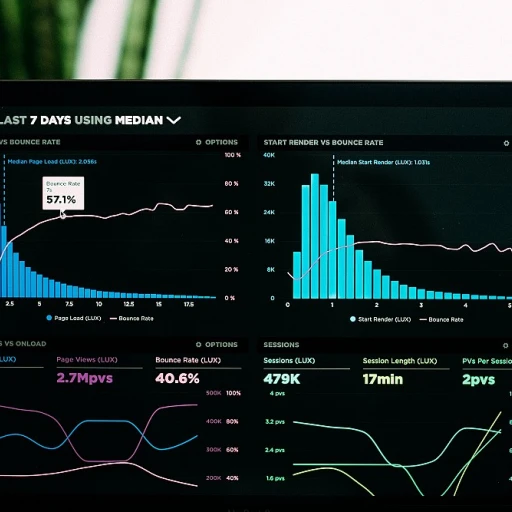
Understanding the Largest Social Media Platforms
Major Players in the Social Media Landscape
The largest social media platforms are the driving force behind digital influence today. With billions of active users worldwide, platforms like Facebook, Instagram, Twitter, and TikTok have redefined the way individuals connect and engage globally. For influencers and businesses, these platforms offer unprecedented opportunities to disperse their message and build understanding amongst diverse audiences.
Investment in private equity firms often parallels the growth and reach these platforms enjoy. As equity firms and investors recognize the immense potential in such platforms, they channel capital into expanding their reach and capabilities. This growth, in turn, opens up vast opportunities for influencers striving to build their brand and influence, mirroring the route of venture capital funding opportunities.
Evolving Ecosystems
Companies and brands seamlessly integrate their marketing efforts leveraging these social media giants. Not only do they target consumers, but they also engage limited partners and board directors, attracting their interest in a more interactive manner. This dynamic approach allows for tailored content distribution directly to relevant portfolios, enhancing return on investment.
Although challenges arise, like navigating the vast landscape of private markets or maintaining engagement amidst continuously evolving algorithms, influencers remain resilient. By understanding and adapting to platform dynamics, they harness the power of these ecosystems effectively. This adaptation often involves strategic interest and innovative engagement tactics, much like asset classes and management styles in real estate and law firm endeavors.
Understanding these platforms is crucial for influencers striving to succeed. Delving deeper into their geometries and functionalities offers the ability to harness the power vested within them. Explore more about unlocking this potential through the power of these platforms, guiding influencers towards leveraging their full potential.
Challenges Faced by Influencers
Overcoming Common Obstacles in the Influencer Journey
In today's digital age, influencers encounter a myriad of challenges as they strive to build and maintain their presence across major social media platforms. Understanding these hurdles is crucial to crafting effective strategies for success in this ever-evolving landscape.
Firstly, influencer credibility remains a significant challenge. As competition intensifies among influencers, ensuring authenticity is vital. Followers are more discerning than ever, valuing genuine connections over sponsored content. This calls for influencers to balance their brand partnerships with personal, relatable content, ultimately reinforcing trust and long-term engagement with their audience.
Monetization poses another challenge. While opportunities abound, navigating the nuances of equity fund agreements, private equity deals, and venture capital investments can be daunting. It's essential for influencers to build acumen in capital management and deal frameworks to maximize their earnings. Moreover, engaging with limited partners and private equity entities requires a nuanced understanding to effectively convert their social influence into profitable enterprises.
In addition, staying relevant amidst ever-changing algorithms and platform updates necessitates a keen focus on analytics and performance metrics. This involves leveraging tools to analyze data trends and adjust strategies accordingly, ensuring their content reaches the intended audience effectively. Engaging in continuous learning and adapting promptly to platform shifts are key aspects influencers must embrace.
For more insight on managing these obstacles, influencers can benefit from exploring the potential of emerging tools like Little Bird AI. Utilizing such technology can greatly enhance their social media influence and offer solutions to some of the most pressing issues they face.
Influencers who can navigate these obstacles, while aligning their brand with pertinent partners and investment firms, are positioned to achieve substantial growth in their digital footprint and monetization ventures, paving the way for sustained success within the social media sphere.
Strategies for Maximizing Influence
Strategies to Enhance Social Media Influence
In the ever-evolving landscape of major social media platforms, influencers must develop effective strategies to increase their reach and impact. Navigating platforms like Facebook, Instagram, and Twitter, where engagement is key, requires a multifaceted approach.
One primary strategy involves understanding your audience. Influencers should leverage analytics to gain insights into their followers' preferences and behaviors. These insights can inform content creation and posting schedules, maximizing engagement rates. Furthermore, building a community around shared interests can foster a deeper connection with the audience.
Partnerships with brands and companies can also amplify an influencer’s status. In engaging with private equity firms, venture capital investors, and portfolio companies, influencers can extend their reach to these audiences. By collaborating in meaningful ways with partners, influencers can access new investment opportunities and unlock further monetization avenues.
Another crucial strategy is content diversification. Creating a mix of visual, textual, and interactive content can keep followers engaged and attract diverse demographic groups. Employing techniques such as strategic hashtags and compelling visual storytelling can elevate an influencer's profile. For further insights into these techniques, our analysis of Facebook and Twitter engagement is recommended.
Finally, staying informed about platform updates and industry trends is essential. Influencers should regularly visit forums, engage with peers in private markets, and participate in discussions with fellow general and limited partners. Being proactive in this regard ensures influencers remain ahead in the digital game.
The Role of Analytics in Social Media Success
The Power of Data in Shaping Influence
In the realm of social media, analytics serve as the backbone for any influencer aiming to understand and maximize their reach. Detailed data analysis can reveal insight into audience behavior, engagement metrics, and even potential areas for growth. By leveraging these analytic tools, influencers can streamline their strategies, pushing their content to resonate more deeply with their audience.
Analytics help influencers track the performance of posts over time, offering valuable feedback on what's working and what's not. It guides the strategic allocation of resources, ensuring that every piece of content published not only engages but also aligns with the influencers' goals. As influencers navigate their journey, real-time data provides them with actionable insights that can be used to improve post frequency, content type, and overall timing.
Aligning with Investment Opportunities
The social media landscape is continually evolving, driven in part by substantial investment from private equity firms and global investors. These entities recognize the immense potential of digital platforms to generate robust returns. As a result, many companies and equity firms are investing in technology that enhances data analytics capabilities, providing influencers with more precision and depth in tracking their social impact.
This trend towards data-centric decision-making is mirrored in the wider investment landscape. Firms and companies are increasingly focusing on acquiring analytic tools that offer a competitive edge. From limited partners to general partners, the ability to interpret data effectively is seen as vital for maximizing returns from equity funds or venture capital investments. Analytics reshape not only influencer strategies but the entire landscape of digital marketing investments.
Data-Driven Decision Making
For influencers, the application of analytics extends to essential business strategies, enabling them to gauge partnerships, understand brand alignment, and identify the right opportunities for collaboration. A well-informed strategy, backed by robust analytics, piques the interest of potential partners or investors, thereby opening doors to monetization avenues.
The accurate interpretation of social media metrics allows influencers to present tangible results to firms seeking partnerships. When influencers can demonstrate engagement growth through data, they enhance their credibility in the eyes of brands and investors alike, fostering trust and setting a foundation for lucrative partnerships.
In conclusion, analytics are more than just numbers; they're a guiding compass in the dynamic world of social media influence, shedding light on strategy optimization and enabling influencers to create a roadmap for sustained success. For influencers aiming to thrive, honing their data interpretation skills is as critical as crafting engaging content.
Monetization Opportunities on Major Platforms
Monetization Pathways for Influencers on Dominant Platforms
Capitalizing on social media platforms as an influencer isn't limited to mere brand collaborations. There's a wide spectrum of monetization opportunities available, especially when collaborating with firms involved in private investments. The key lies in understanding the available pathways that align with your brand and audience.
- Brand Partnerships and Sponsored Content: Influencers often collaborate with brands for sponsored content, significantly boosting their bank accounts. Equity firms can play a part in these deals, offering investors a stake in digital marketing initiatives.
- Affiliate Marketing: By promoting products and earning a commission on sales, influencers can create a steady stream of income. This method feeds into the interests of investors focused on return-driven strategies.
- Merchandising and Product Lines: Launching a personal product line or limited edition collections with portfolio companies can be a lucrative avenue. It requires investment from private equity, which can lead to substantial returns for general partners.
- Exclusive Content and Subscription Services: Platforms offering paid subscriptions allow influencers to provide premium content in exchange for direct consumer funding. This approach has garnered interest from investors and private equity partners alike.
- Collaborations with Venture Capitalists: Collaborating with venture capital funds offers influencers a unique chance to engage in investments that align with their brand's ethos, proving especially appealing to limited partners seeking diversified portfolios.
- Investments through Private Markets: Influencers can engage in private equity funds, offering a direct line of interest-bearing returns. It's critical for influencers to manage these investments effectively to maintain credibility.
Understanding these monetization opportunities requires diligent management and informed decision-making to maximize returns. Equity fund managers and board directors assist influencers in navigating these prospects, ensuring sustainable growth and secured investments for years to come. In doing so, influencers not only generate substantial income but also build a lasting impact on both digital and traditional markets.
Future Trends in Social Media Influence
Anticipating Future Shifts in Social Media Influence
The landscape of social media influence is continually evolving, making it essential for influencers and brands to stay ahead of emerging trends. In the coming years, we can anticipate several significant changes driven by technological advancements, regulatory policies, and shifting demographics.- AI and Automation: The role of artificial intelligence is growing, particularly in content creation and audience targeting. Influencers will need to adapt to these tools to efficiently manage and enhance their engagement strategies. AI's integration into social media platforms might also impact how private equity funds allocate investments, as AI-driven analytics offer deeper insights into audience behaviors and preferences.
- Regulatory Changes: With increasing scrutiny from regulatory bodies globally, influencers should prepare for stricter guidelines on transparency and disclosure, especially concerning sponsored content and partnerships with equity firms. This could affect how firms and their limited partners engage with social media influencers to promote their brands.
- Diversification of Platforms: New social media platforms and formats are continually emerging, offering fresh opportunities for influencers. However, this also poses the challenge of needing to allocate time, resources, and capital effectively. Investors and investment firms closely monitoring these trends might inject capital into the most promising platforms, altering the dynamics of industry influence.
- Growing Importance of Privacy: Privacy concerns will continue to impact how people interact with social media. As privacy laws tighten, influencers must be more cautious with data sharing. Board directors and law firms specializing in private markets might play crucial roles in advising influencers and companies on navigating these concerns while protecting investor interests.
- Increased Monetization Opportunities: As described in previous sections, monetization strategies will evolve, with more creative collaborations involving private debt and equity funds. The integration of real estate investments could also become more prominent, where influencers act as key partners in marketing campaigns, bridging the gap between traditional investment firms and a digital-savvy audience.
- Impact of ESG Factors: Investors, firms, and companies are placing greater emphasis on Environmental, Social, and Governance (ESG) criteria. Influencers who align with these values and highlight sustainable practices can expect stronger partnerships with equity funds that prioritize ESG-compliant portfolio companies.













